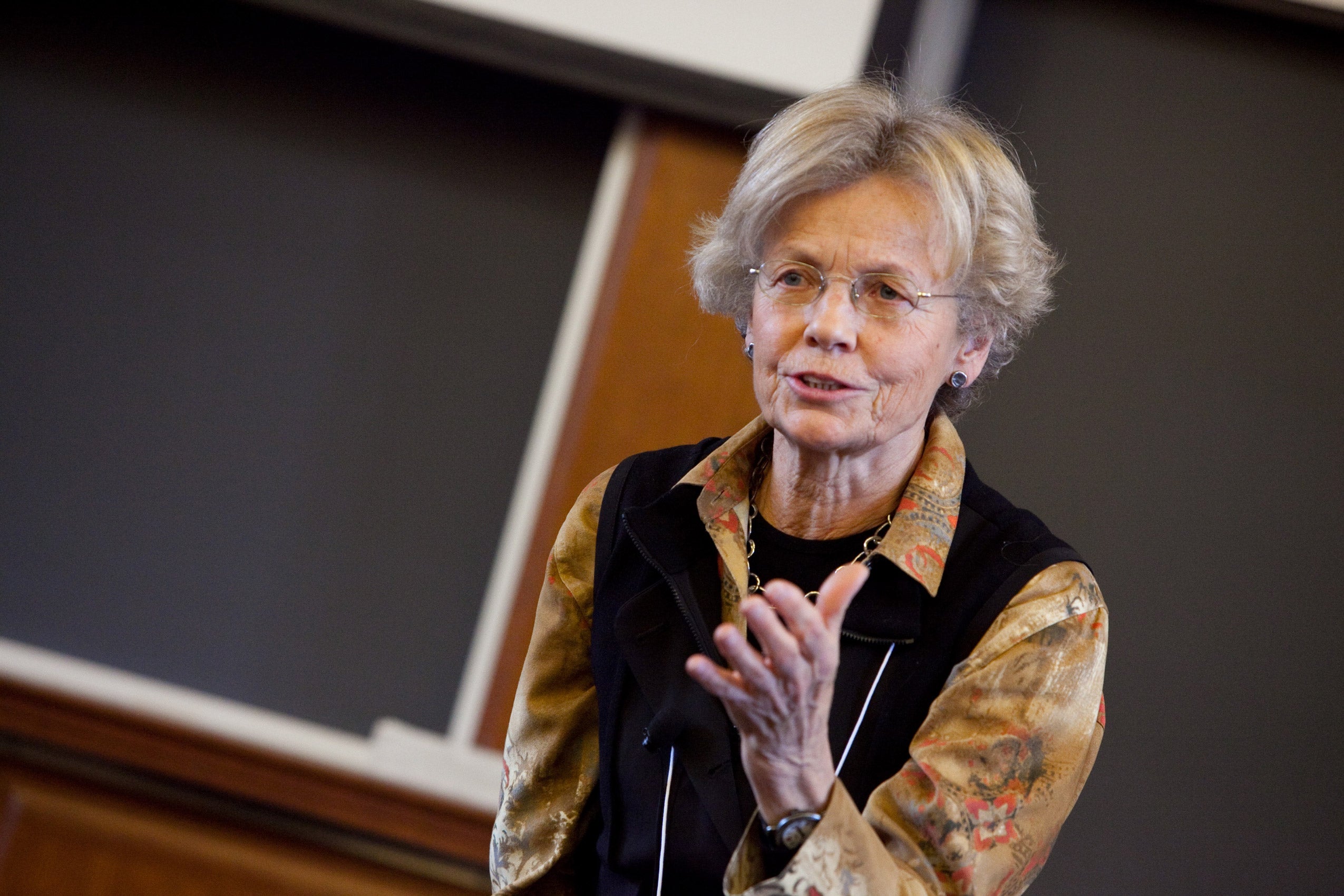Harvard Law School Professor Elizabeth Bartholet received an award from the National Human Rights Committee of Qatar, in Doha, in January.
The award was presented by Sultan Hassan al Jamali, assistant secretary general of the National Human Rights Committee of Qatar, at a ceremony, in Doha, on Jan. 8, 2014. The NHRC of Qatar was established in 2002 as a way of protecting and enhancing human rights, with a focus on improving workers’ rights, women’s rights and human rights in Qatar.
Bartholet, the Morris Wasserstein Public Interest Professor of Law at Harvard Law School, is the faculty director of HLS’s Child Advocacy Program (CAP), a program she founded in 2004. Bartholet, who specializes in child welfare, adoption, and reproductive technology, has received several awards for her writing and accomplishments in the adoption and child welfare field. She is the author of several books, including “Nobody’s Children: Abuse and Neglect, Foster Drift, and the Adoption Alternative” and “Family Bonds: Adoption, Infertility, and the New World of Child Production.”
While in Doha in January, Bartholet served as a panelist at Harvard Law School’s annual Institute for Global Law and Policy (IGLP) Workshop, hosted this year by Hamad bin Khalifa University, a member of Qatar Foundation, in Doha. Bartholet served as a panelist and chaired a panel on international adoption, transnational surrogacy and human rights. The IGLP Workshop, held this year from January 3 to 11, 2014, brings together more than 100 doctoral, post-doctoral scholars, and junior faculty from around the world every year to promote and discuss new approaches to issues of global law, economic policy, social justice and governance. This is the second year in a row that the workshop has been held in Doha.
In February, Bartholet was one of 34 Harvard Law School faculty members and 24 faculty from Boston College Law School to sign a letter urging the U.S. Congress to support the core principles in the pending legislation known as CHIFF (Children in Families First), S. 1530 and H.R. 3323. The core principles include recognition of a child’s fundamental human right to a nurturing permanent family; commitment by the U.S. government to vindicate that right; and recognition that children’s interests are generally best served by early placement in permanent nurturing families.
